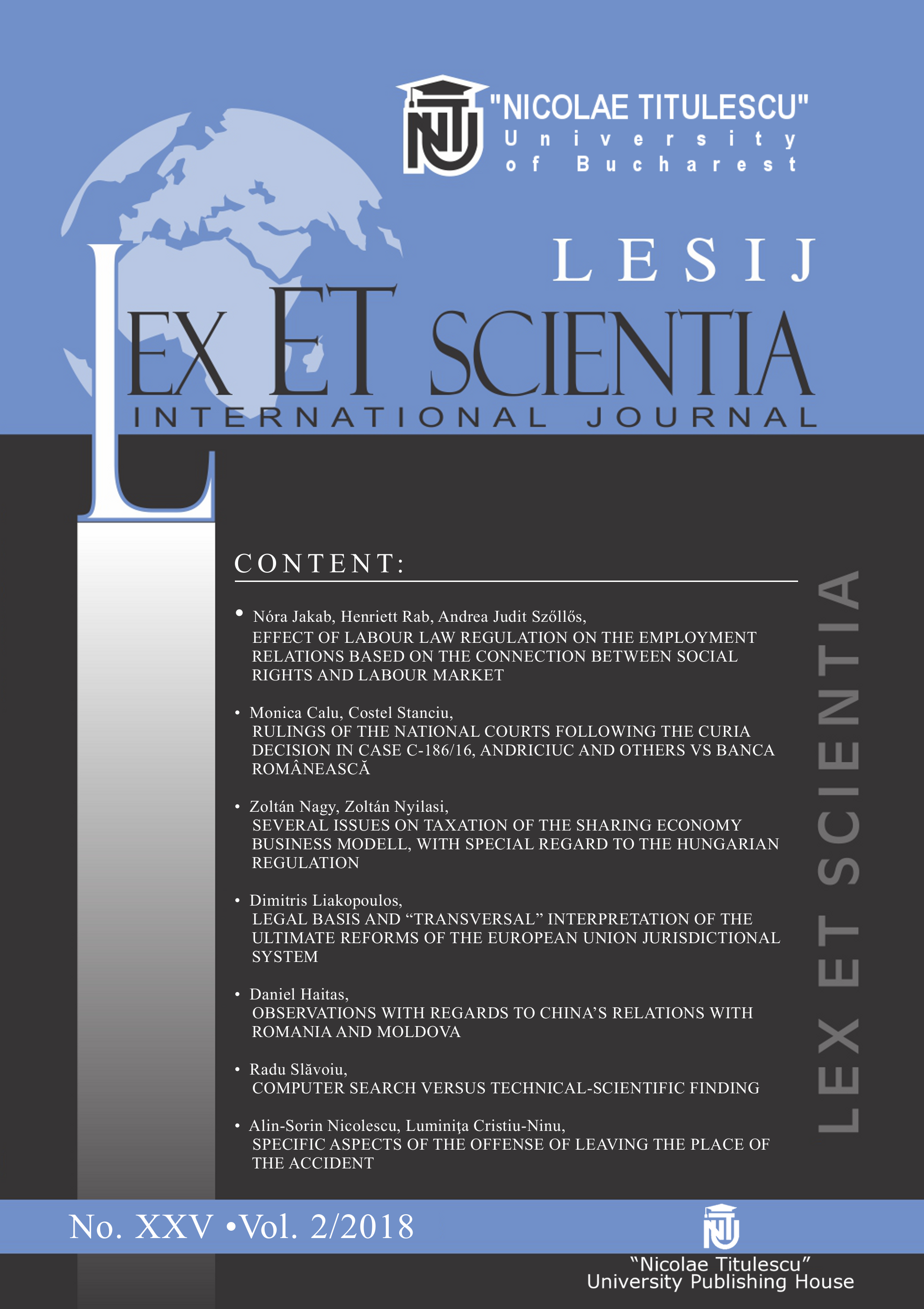RULINGS OF THE NATIONAL COURTS FOLLOWING THE CURIA DECISION IN CASE C-186/16, ANDRICIUC AND OTHERS VS BANCA ROMANEASCA
RULINGS OF THE NATIONAL COURTS FOLLOWING THE CURIA DECISION IN CASE C-186/16, ANDRICIUC AND OTHERS VS BANCA ROMANEASCA
Author(s): Monica Calu, Costel StanciuSubject(s): Law, Constitution, Jurisprudence, Commercial Law
Published by: Universitatea Nicolae Titulescu
Keywords: unfair terms in consumer contracts; plain intelligible language in consumer contracts; significant imbalance in the parties rights and obligations arising under the contract;
Summary/Abstract: The CJEU's judgment in Andriciuc and Others vs Banca Românească Case C-186/16 that came in September 2017 is an addition to a growing body of case law on procedural obstacles to consumer protection under Directive 93/13/EEC. According to the Court, a contractual term must be drafted in plain intelligible language, the information obligations should be performed by the bank in a manner to make the well-informed and reasonably observant and circumspect consumer aware of both possibility of a rise or fall in the value of the foreign currency and also enabling estimation of the significant economic consequences of repayment of the loan in the same currency as the currency in which the loan was taken out. Following a succession of consumer-friendly preliminary rulings from European Court of Justice (Case C-26/13, Árpád Kásler, Hajnalka Káslerné Rábai v OTP Jelzálogbank Zrt and Case C-186/16 Andriciuc and Others v Banca Românească, bank customers across the European Union are increasingly taking their banks to court. However, there are still a lot of provisions in the national legislations which made the judicial review of unfair contract terms difficult and reveals the limits of consumer protection under Directive 93/13. Also, we focus on the powers of the national court when dealing with a term considered to be unfair (civil) courts and the availability of legal remedies in ensuring the effectiveness of the Directive. Although the CJEU provides interpretation of EU law, the national court alone has jurisdiction to find and assess the facts in the case before it and to interpret and apply national law. The ruling issued by the Court of Justice of the European Union (CJUE) in the Andriciuc versus Banca Românească case represents a great advantage for some of the European debtors. In this paper, we intend to examine, starting from the theory of abusive clauses and referring to the jurisprudence of the European Court of Justice in the matter, to what extent it is possible that under Council Directive 93/13 / EEC of 5 April 1993 on unfair terms in consumer contracts and the national laws of the various Member States to order “freeze of the exchange rate” or conversion of the currency of the credit into domestic currency
Journal: LESIJ - Lex ET Scientia International Journal
- Issue Year: XXV/2018
- Issue No: 2
- Page Range: 40-46
- Page Count: 7
- Language: English

